350 Top Q&A Questions to Expect for Any Presentations (Save Them Now!)
Zhun Yee Chew
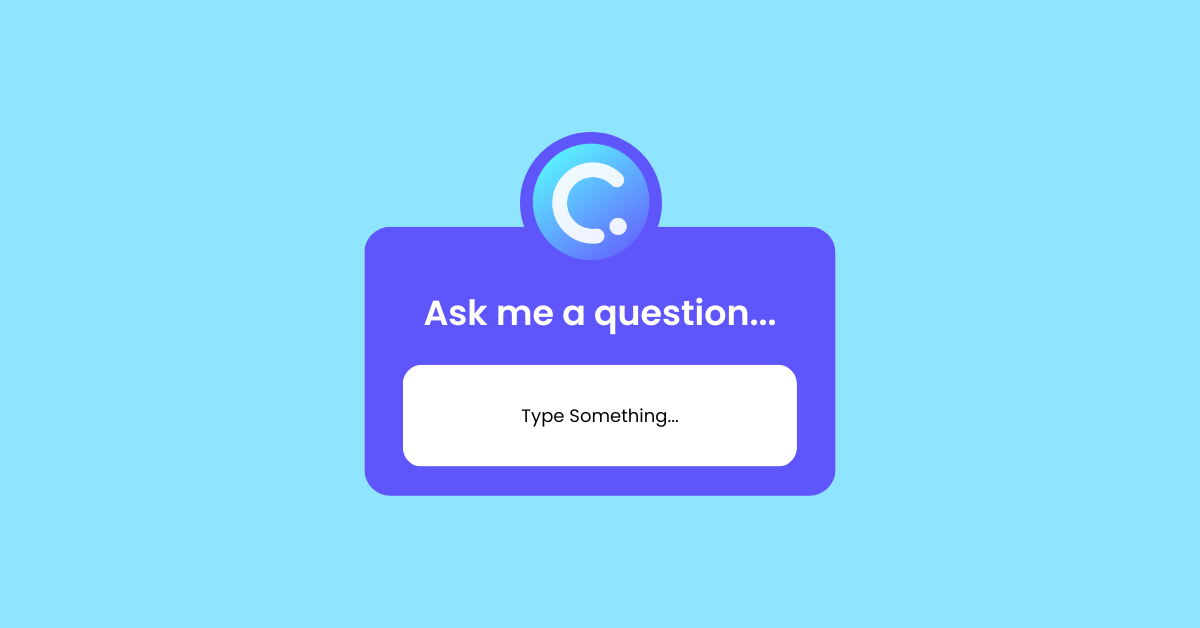
Preparing the slide content is nothing compared to dealing with daunting questions during the Q&A session of a presentation. Sometimes, if we are not lucky, we will face a tough crowd with even tougher questions that may leave us feeling challenged on the spot. And none of us likes the awkward moment of not being able to provide a satisfactory response to the audience.
Answering Q&A questions is a skill that everyone can master with the right resources and the right amount of preparation. You’ve searched, and we have them for you.
In this article, you will find more than 300 Q&A questions that are most commonly asked in a wide range of presentation occasions. Save them so you can be ready for even the most unexpected questions in your upcoming presentations!

What Are Q&A Questions?
Q&A questions, short for “Questions and Answers”, are inquiries posed by an audience or participants to the speaker or presenter during the Q&A session of a presentation . This Q&A segment typically follows a presentation, a talk or a lecture, providing the opportunities for the audience to seek clarification, ask additional information, or understand the speaker’s perspectives.
The whole point of Q&A sessions is to make the presentation more interactive and foster engagement . It’s a chance for the audience to pick the speaker’s brain and get a better understanding of the subject.
What Are the Different Types of Presentations?
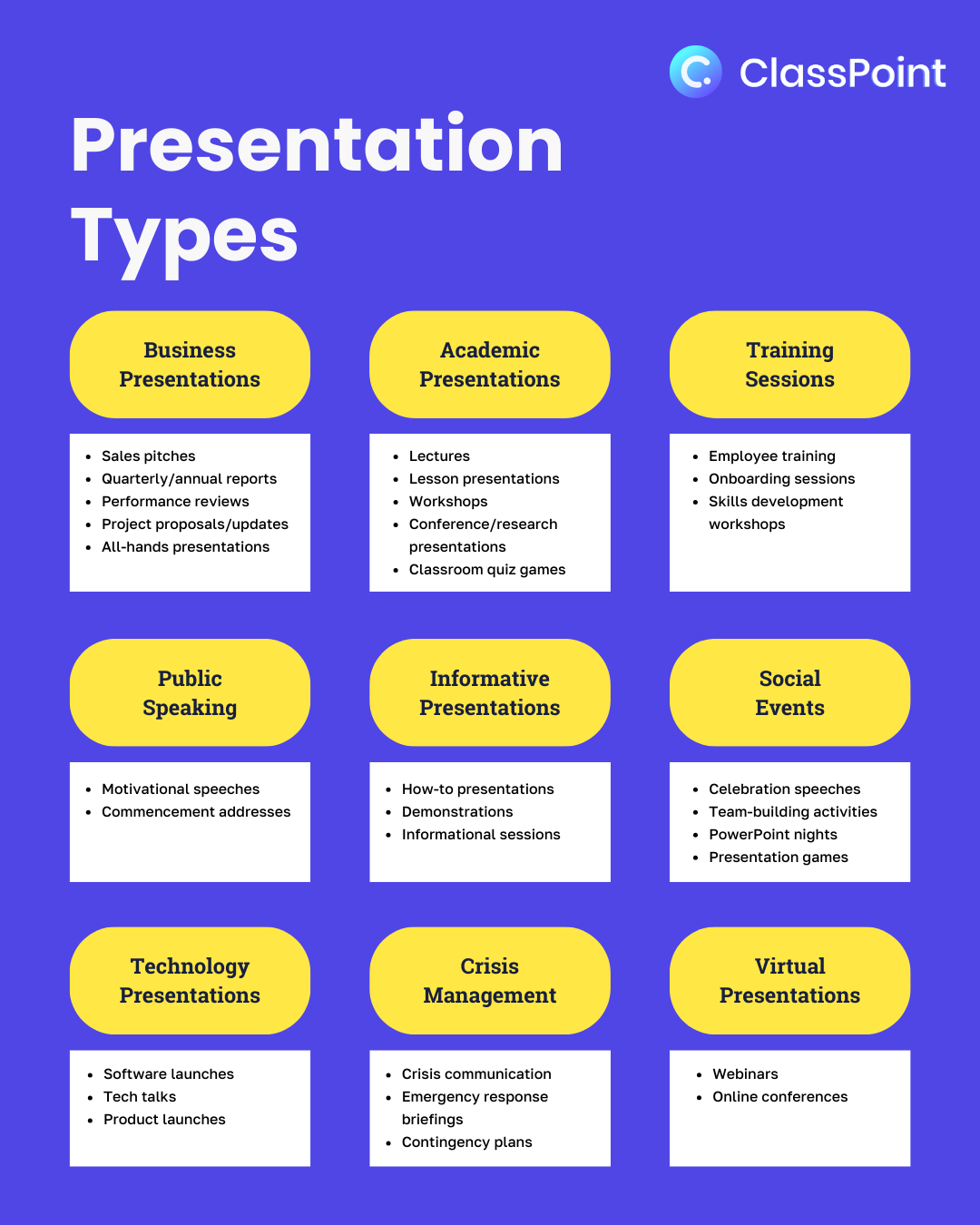
Business Presentations:
- Sales pitches
- Quarterly or annual reports
- Performance reviews
- Project proposals/updates
- All-hands presentations
Academic Presentations:
- Lesson presentations
- Conference/research presentations
- Classroom quiz games
Training Sessions:
- Employee training
- Onboarding sessions
- Skills development workshops
Public Speaking:
- Motivational speeches
- Commencement addresses
Informative Presentations:
- How-to presentations
- Demonstrations
- Informational sessions
Social Events:
- Celebration speeches
- Team-building activities
- PowerPoint nights
- Presentation games
Technology Presentations:
- Software launches
- Product launches
Crisis Management:
- Crisis communication
- Emergency response briefings
- Contingency plans
Virtual Presentations:
- Online conferences
Different presentations involve different audience types, and the nature of questions posed can vary significantly based on presentation formats and occasions. However, the core of a successful and engaging presentation remains constant – ensuring interactivity in a presentation and transforming it into a two-way street through Q&A questions and adding interactive elements or using interactive tools in your presentations.
Academic Presentation Q&A Questions
Q&a questions for lecture presentations.

- Can you provide more examples for the concept/theory you just explained?
- Are there any common misconceptions about this topic that we should be aware of?
- What are the main differences between this and [related topic]?
- Can you explain the steps involved in [specific process] in more detail?
- What are the current research trends or developments in this field?
- How does this concept connect to what we learned in the previous lesson?
- Are there any alternative approaches to solve the problems here?
- Can you recommend additional resources or readings?
- Can you provide some tips for studying this material effectively?
- Are there any real-world examples where this concept has been successfully applied?
- What are the most common mistakes students make when working on assignments for this topic?
- Can you explain the significance of this concept in the context of future careers?
- What are the ethical considerations associated with the topics we are discussing?
- Are there any current debates or controversies related to this topic?
- How does this topic connect with interdisciplinary subjects or other courses?
- Can you share examples of how this concept might be used in different industries or professions?
- Can you summarize the key takeaways of today’s presentation?
- Can you discuss any historical or cultural context that influences this topic?
- How might this information be relevant to current events or societal issues?
Q&A Questions for Academic Conference Presentations

- How did you decide on the research question or topic for your study?
- How did you select your sample or participants, and how representative is it of the broader population?
- Can you explain the methodology you used in your research and why you chose that approach?
- What are the main findings or key results of your study?
- How do your findings contribute to the existing body of knowledge in your field?
- Can you discuss any limitations or challenges you encountered during your research?
- What implications do your findings have for practitioners in the field?
- Can you elaborate on the theoretical framework that guided your study?
- What ethical considerations did you address in your research, and how were they managed?
- How did you validate the reliability and validity of your research instruments or methods?
- How did you address potential biases or confounding variables in your research?
- How do your findings compare to previous research on the same or similar topics?
- Can you discuss any unexpected or surprising results that you discovered during your study?
- How did you handle data analysis, and what statistical methods were employed in your study?
- What alternative explanations or interpretations of your data did you consider?
- How does your research contribute to addressing specific gaps in current knowledge?
- How did you control for potential confounding variables in your research design?
- What recommendations do you have for policymakers based on your research findings?
- How does your study relate to other recent or ongoing research in the same area?
- Are your findings generalizable to different populations or settings?
- How did you ensure the rigor of your data analysis and interpretation?
- What role did collaboration play in your research, and how did you handle disagreements within the research team?
- Can you share any unexpected challenges you faced during the research process?
- How might your findings be applied in a practical context, such as in industry or education?
- How did you establish the validity of your conclusions in light of potential bias or subjectivity?
- What potential areas for future research did your study uncover?
- Can you discuss the relevance of your research to current global or societal issues?
- How did you handle any limitations in available resources or funding for your research?
- What key takeaway message or lesson would you like the audience to remember from your presentation?
Q&A Questions for Student Presentations

- Can you elaborate on the research process you used to gather information for your presentation?
- Can you discuss the process of selecting and organizing the visual elements in your presentation, such as charts or graphs?
- How did you decide on the topic or key elements to include in your presentation?
- What challenges did you encounter while preparing for your presentation, and how did you overcome them?
- What did you learn about the topic that surprised you during your research?
- Can you explain the significance of your topic or its relevance to the course content?
- Can you discuss any alternative perspectives or counter-arguments related to your topic that you considered?
- What sources did you consult to ensure the accuracy and reliability of the information presented?
- Can you explain the connection between your topic and current events or real-world applications?
- Can you share any specific examples or case studies that support the points you made in your presentation?
- Can you elaborate on any implications or applications of your findings beyond the scope of your presentation?
- Can you discuss any ethical considerations related to your topic that you addressed in your presentation?
- How might your presentation contribute to the understanding of the broader course themes or objectives?
- What aspects of the presentation are you most proud of, and what would you do differently next time?
Q&A Questions for Project-Based Lessons

- What is the main goal or objective of this project, and how will our work contribute to it?
- Can you provide more details about the criteria for success in this project?
- How will our progress be assessed, and what are the key milestones or deadlines?
- Can you clarify the roles and responsibilities of each team member in the project?
- Are there specific resources or materials that we should use or reference for this project?
- Can you provide examples of successful projects from previous classes or students?
- Are there specific presentation or communication requirements for showcasing our project?
- What opportunities for feedback and revision will be available throughout the project timeline?
Business Presentation Q&A Questions
Q&a questions for sales pitches.

- What makes your product or service different from competitors in the market?
- Can you provide some specific examples of companies or clients who have successfully used your product/service?
- How does your product/service address specific pain points or challenges that customers commonly face?
- Can you share some success stories or case studies related to your product/service?
- How does your product/service integrate with existing tools or systems our company uses?
- What kind of support or training is provided to customers after they purchase your product/service?
- Can you explain the implementation process and how quickly we can expect to see results?
- Are there any customization options available to tailor the product/service to our specific needs?
- What kind of ongoing maintenance or updates does your product/service require?
- How do you ensure the security and privacy of our data when using your product/service?
- Are there any limitations or restrictions we should be aware of when using your product/service?
- How often do you release updates or new features to your product/service?
- Can you explain the scalability of your solution and how it can grow with our business?
- What is your company’s roadmap for future developments or enhancements to the product/service?
- What is the typical return on investment (ROI) that your customers experience after implementing your product/service?
- How do you handle issues or challenges that may arise post-purchase?
Q&A Questions for Work Presentations

- How does your proposal align with our company’s overall goals or strategic objectives?
- What potential challenges do you foresee in implementing this plan, and how do you plan to address them?
- Can you explain the specific roles and responsibilities of each team member involved in this project?
- What kind of timeline are you envisioning for the different phases of this project?
- Have you considered alternative approaches to achieve the same goals, and if so, what are they?
- What resources, budget, and manpower will be required to execute this plan successfully?
- How do you plan to measure the success or effectiveness of this project?
- Are there any potential risks associated with your proposal, and what mitigation strategies do you have in place?
- Can you provide examples of similar projects that have been successful in the past, either within our company or in other organizations?
- How will you keep stakeholders informed and engaged throughout the project lifecycle?
- What kind of collaboration and communication tools do you plan to use to keep the team connected?
- Are there any dependencies or external factors that could impact the timeline or success of this project?
- Can you explain how this project aligns with current industry trends or best practices?
- What are the potential roadblocks or obstacles you anticipate, and how do you plan to overcome them?
Q&A Questions for Performance Review Presentations

- Can you highlight specific projects or tasks where you feel you excelled?
- How have you demonstrated leadership skills and the ability to take initiative?
- Have there been any instances of conflict or difficult situations, and how did you handle them?
- What accomplishments are you most proud of since our last performance review?
- Where do you think you could have performed better, and what challenges did you face?
- How well do you think your current responsibilities align with your career goals?
- What new skills or responsibilities would you like to take on in the next year?
- How have you found the feedback and communication within the team or organization?
- How well do you feel you have contributed to team projects and collaborations?
- Are there ways we can enhance teamwork and collaboration within the team?
- Is there anything we can do to support you better in your role?
- What additional resources or training do you think would benefit you in your role?
- What motivates you in your work, and how can we ensure your continued motivation?
- What steps can we take to help you achieve your long-term career goals?
Q&A Questions for Annual/Quarterly Report Presentations

- How did specific projects or initiatives contribute to the overall success or challenges outlined in the report?
- What challenges or obstacles did the team face during the reporting period, and how were they addressed?
- Are there any unexpected or significant changes in the industry landscape that may affect future performance?
- What steps were taken to mitigate risks and uncertainties identified in the previous reports?
- Can you discuss the budgetary implications of the results presented in the report?
- How did the team adapt to changes in customer preferences or demands during this reporting period?
- How do the results align with the long-term strategic objectives of the organization?
- Can you discuss any feedback or concerns received from clients, customers, or stakeholders mentioned in the report?
- How did internal collaborations or cross-functional teamwork contribute to the outcomes presented?
- What initiatives or projects are planned for the upcoming quarter or year in response to the findings in the report?
- Can you elaborate on the return on investment (ROI) for specific marketing or promotional activities mentioned in the report?
- How do the current results compare to benchmarks or industry standards for similar organizations?
- Can you discuss any changes or improvements in operational processes that were implemented during the reporting period?
- Can you provide insights into any potential areas for improvement or focus in the coming reporting period based on the data presented?
Q&A Questions for All-Hands Presentations
- What are the key priorities and goals for the team in the upcoming quarter/year?
- Can you provide more details about the recent changes in team structure or leadership?
- How will recent industry trends or developments impact our team’s strategies moving forward?
- Can you discuss the reasoning behind recent policy changes or updates within the team?
- How will the team address challenges identified in recent performance reports or feedback?
- Can you provide insights into the budget allocation and resource planning for the team?
- How will the team adapt to changes in technology or tools that may affect our workflow?
- What professional development opportunities will be available to team members in the coming months?
- Can you share updates on recent achievements or milestones reached by the team?
- Can you discuss the team’s approach to fostering diversity and inclusion within the workplace?
- What strategies will be implemented to maintain team morale and motivation?
- Can you elaborate on the team’s strategy for managing workloads and preventing burnout?
- How will the team address any challenges related to communication?
- What steps will be taken to recognize and celebrate individual and team achievements in the future?
Public Speaking Q&A Questions
Q&a questions for motivational presentations.

- How did your background or experiences shape your perspective on the topic you discussed?
- How can individuals or communities apply the ideas you shared in their own lives or work?
- What impact do you hope your work will have on the future of [your topic]?
- How has your perspective on [your topic] evolved throughout your journey, and what lessons have you learned?
- How do you suggest we, as individuals, can contribute to or support the goals you outlined in your presentation?
- What advice do you have for someone who wants to get involved in or pursue a similar field or project?
- What are the common misconceptions or misunderstandings about [your topic] that you’d like to address?
- How can the audience stay informed or engaged with ongoing developments in your field or topic?
- Can you share personal experiences where you overcame significant obstacles and found motivation in [an area]?
- What advice do you have for dealing with [a personal issue]?
- How do you handle setbacks and failures in [an area]?
- What daily habits or routines do you recommend for sustaining long-term motivation?
- How can individuals at various career stages benefit from the insights you shared?
- Can you share examples of successful individuals who have been a source of inspiration for you?
Informative Presentation Q&A Questions
Q&a questions for youtube or online webinar presentations.

- How can I access the recording of this webinar for future reference?
- Can you recommend any additional resources for further learning on this topic?
- How does this information apply to different industries or professions?
- How do you suggest we adapt these concepts to our specific organizational context?
- How can we stay updated on new developments or research in this field?
- Can you suggest strategies for overcoming resistance to change when implementing these ideas?
- What role does ongoing professional development play in mastering the skills you discussed?
- How can individuals without a background in this field apply the principles you discussed?
- Can you explain the potential challenges or common mistakes people might encounter when trying this on their own?
- How do you foresee the future trends or developments affecting the subject of this webinar?
- Can you recommend specific tools or software that would enhance our implementation of these strategies?
- What are some key indicators of success when implementing the strategies you discussed?
- Can you discuss any industry standards or benchmarks related to the topics covered in this webinar?
- What would be the first step you recommend for someone looking to implement these ideas in their organization?
Q&A Questions for Demonstration Presentations

- Can you clarify the purpose or goal of the demonstration?
- What specific steps are involved in the process you just demonstrated?
- Are there alternative methods or tools that can be used for this demonstration?
- How long does it typically take to master this skill or process demonstrated?
- Are there any safety precautions that should be considered?
- Can you provide tips for troubleshooting or overcoming obstacles in the demonstrated activity?
- How does this demonstration apply to real-world scenarios or practical situations?
- Are there variations or advanced techniques related to this demonstration that you didn’t cover?
- Can you share examples of successful applications or projects that used the demonstrated technique?
- How does this demonstration align with current trends or innovations in the field?
- What feedback or suggestions do you have for individuals attempting the demonstrated task for the first time?
- Can you discuss any modifications or adaptations that may be necessary for different skill levels or abilities?
Training Presentation Q&A Questions
Q&a questions for training workshops.
- Can you provide more examples or practice exercises to reinforce the concepts you just covered?
- Are there any additional resources or recommended readings for further learning on this topic?
- Can you explain the specific steps or strategies for applying what we’ve learned in a real-world context?
- How often is this training updated to reflect changes in industry standards or best practices?
- How can we track our progress and measure the effectiveness of this training?
- Are there opportunities for practical application or hands-on exercises to reinforce the learning?
- Can you discuss any potential challenges or common difficulties participants might encounter during the training?
- Can you provide insights into how this training aligns with current trends or innovations in the industry?
- How will successful completion of this training impact our professional development or career advancement?
- What kind of ongoing support or resources will be available to participants after completing the training?
- Can you explain the relevance of each module or section of the training to our specific roles or responsibilities?
- Can you discuss any case studies or success stories related to individuals who have completed this training?
- Can you outline the specific skills or competencies participants are expected to gain by the end of the training?
Creative Presentation Q&A Questions
Q&a questions for brainstorming presentations.

- How did you arrive at the ideas presented during the brainstorming session?
- Can you provide more context on the criteria used to evaluate and prioritize the proposed ideas?
- Are there specific goals or objectives that the brainstormed ideas aim to achieve?
- How do the ideas generated align with the overall vision or mission of the team or organization?
- Can you discuss any potential challenges or constraints that may impact the implementation of these ideas?
- What steps will be taken to further develop and refine the selected ideas from the brainstorming session?
- How will the team decide which ideas to prioritize or move forward with?
- What role do you see each team member playing in the implementation or development of these ideas?
- What steps will be taken to test or prototype the most promising ideas before full implementation?
- Are there any potential synergies or connections between the different ideas presented?
- Can you discuss the anticipated impact or outcomes of implementing these ideas on the team’s objectives?
Q&A Questions for Creative Work Showcase Presentations

- What inspired your creative concept or idea?
- Can you discuss your creative process and how you generated or developed your ideas?
- How did you overcome creative blocks or challenges during the project?
- Can you share any unexpected twists or turns that occurred during the creative process?
- What influenced your choice of colors, themes, or visual elements in your presentation?
- Can you discuss any alternative concepts or ideas that you considered before finalizing your creative work?
- How did you decide on the overall tone or mood of your creative piece?
- Can you discuss any specific techniques or tools you used to bring your creative vision to life?
- How do you balance originality with meeting the expectations or objectives of the project?
- Can you elaborate on the symbolism or deeper meaning behind certain elements in your creative work?
- How did you ensure your creative work aligns with the intended message or purpose of the project?
- Can you share any unexpected challenges you encountered while executing your creative ideas?
- What advice do you have for others looking to enhance their creativity or embark on similar projects?
- Can you discuss any future plans or developments related to your creative work?
Q&A Questions for Portfolio Presentations
- How did you curate or select the pieces included in your portfolio?
- Can you discuss the overarching themes or concepts that tie your portfolio together?
- What criteria did you use to determine which projects or works to include in your portfolio?
- Can you provide insights into your creative process for one of the featured projects?
- How do you believe your portfolio reflects your growth or evolution as a professional or artist?
- Can you discuss any challenges you encountered while working on specific projects in your portfolio?
- What inspired the overall design and layout of your portfolio presentation?
- Can you share any feedback or critiques you received during the creation of your portfolio?
- How do you handle showcasing both personal and professional work in your portfolio?
- How do you stay updated on current trends or techniques in your industry, and how does this influence your portfolio?
- Can you elaborate on any technologies or tools you used to create or present your portfolio?
- How do you handle showcasing a diverse range of skills or talents in your portfolio?
- How do you balance consistency with variety in the presentation of your portfolio pieces?
- Can you provide insights into the decision-making process behind the visual and aesthetic choices in your portfolio?
Subject-Based Presentation Q&A Questions
Q&a questions for history presentations.
- Why is it important for us to study this particular historical period or event?
- Can you provide more context on the social and cultural aspects of the time you discussed?
- Are there any alternative perspectives or interpretations of the historical event you presented?
- How did political or economic factors contribute to the events you covered in your presentation?
- Can you discuss the impact of this historical period on contemporary society or global affairs?
- How do historians generally view or interpret the significance of the events you discussed?
- Can you elaborate on any controversies related to the historical topic you presented?
- Can you discuss any parallels or connections between the historical events you covered and current events?
- Can you elaborate on any lesser-known or overlooked aspects of the historical topic?
- What were the main causes and consequences of the events discussed in this lesson?
- How did global events or other regions influence the events in this specific historical context?
- Can you share more details about the key figures or individuals involved in the historical events?
- Can you discuss any social movements or cultural shifts that occurred during this time?
- Were there any controversies or debates among historians regarding the interpretation of these events?
- What primary sources or historical documents can we explore to gain a deeper understanding of this time?
- What lessons or insights can we draw from the mistakes or successes of the past?
Q&A Questions for Geography Presentations
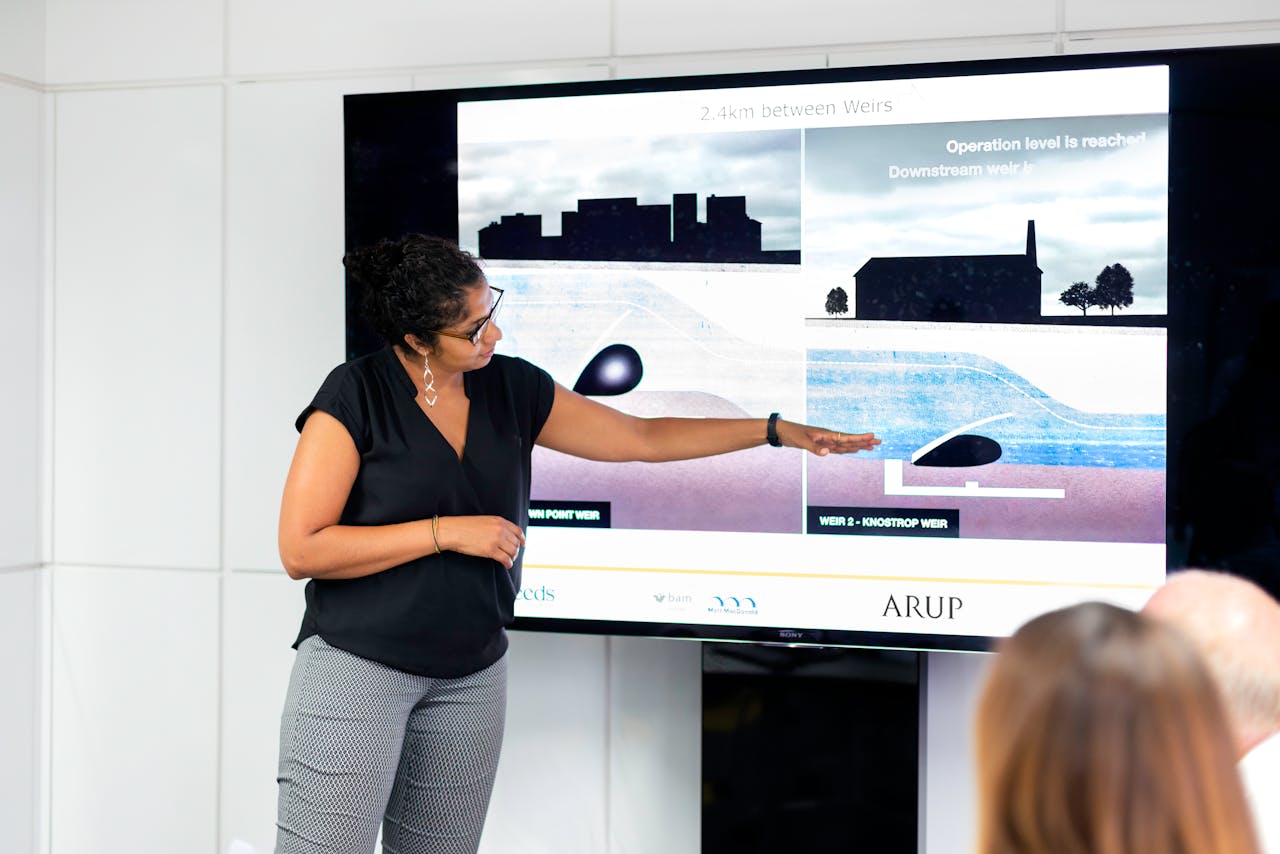
- Can you explain the significance of the geographical features discussed in this lesson?
- What are the cultural or societal aspects that make this geographic area unique?
- Can you discuss the environmental challenges or changes occurring in the region you shared?
- Are there any connections between the geography of a region and its cultural practices or traditions?
- How has human activity impacted the natural landscapes and ecosystems in the region?
- Can you provide insights into the economic factors shaping the geography of the area?
- How do political boundaries or geopolitical factors influence the geography of the region?
- Can you discuss any current or historical conflicts related to the geography you presented?
- Can you share examples of how globalization has impacted the geography you discussed?
- How does the geography of the area influence migration patterns and population distribution?
- Can you discuss any challenges or opportunities related to urbanization in the region?
- Can you provide examples of how transportation infrastructure shapes the geography of the region?
- How do the geographical features discussed impact the local economy and lifestyle?
- Can you discuss the role of sustainable development in shaping the geography of the region?
- How does the geography of a region impact the availability and distribution of resources?
Q&A Questions for Science Presentations
- How does this scientific theory or principle apply to real-world situations?
- Can you provide examples of experiments or demonstrations that illustrate the principles being taught?
- How do current advancements or research in technology influence our understanding of this science?
- Can you provide examples of how this scientific concept has been applied in various industries?
- Can you share insights into any ongoing or future research related to the subject of the lecture?
- Can you elaborate on any potential interdisciplinary connections between this science and other fields?
- How do you see the future developments or advancements shaping the field of science you discussed?
- Can you discuss any recent advancements or breakthroughs in the field related to your presentation?
- What experiments or studies have been conducted to support the information presented in your topic?
- Are there any unanswered questions or areas of uncertainty in the scientific understanding of this topic?
- Can you discuss the importance of peer review in the scientific process?
Q&A Questions for Social Science Presentations
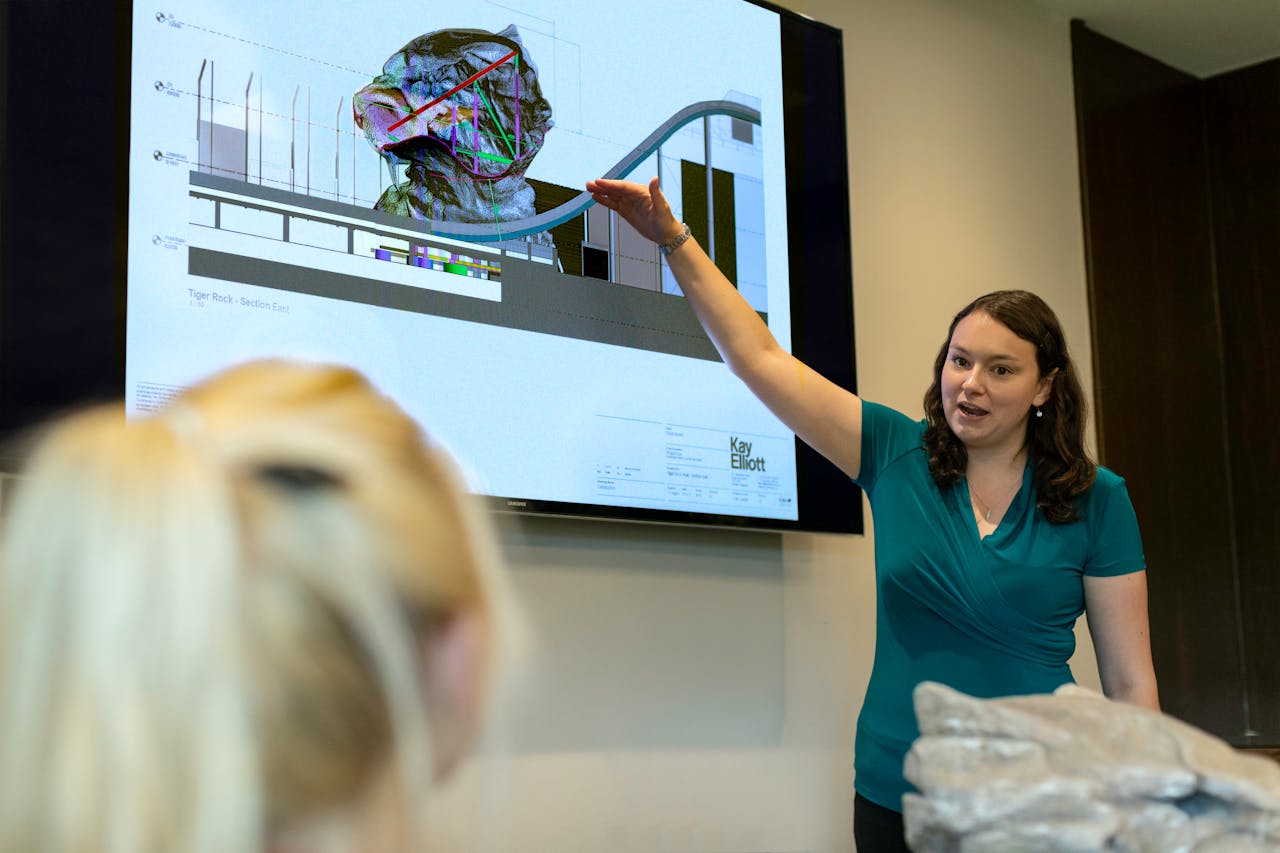
- Can you provide some background information on the topic?
- Can you explain the significance of any statistical analyses or data presented in this studies?
- How might cultural or societal factors influence the interpretation of the findings?
- Are there any primary sources or case studies used in the lesson to illustrate these social science concepts?
- What are the alternative opinions or perspectives that one should consider for this topic?
- How can we critically evaluate bias in the research?
- What are the roles of globalization or international perspectives in this topic?
- Why is [a perspective/opinion] the case?
- What are the potential objections for [a perspective/opinion]?
- How does the topic of this lesson relate to broader social issues or current events?
- Are there any conflicting theories or perspectives within the field related to this lesson’s content?
- Can you explain the practical implications of the theories or concepts covered in this lesson?
- How do the concepts covered in this lesson contribute to a deeper understanding of human behavior or society?
- What are some potential criticisms or limitations of the theories presented in this lesson?
Q&A Questions for Art and Design Presentations
- How do different artistic techniques contribute to the overall aesthetic of the piece?
- Can you explain the cultural or historical influences behind the art or design style being taught?
- How can personal experiences or emotions be expressed through art and design?
- Can you provide examples of famous artists or designers who are known for this particular style or technique?
- How does the use of color, shape, and composition impact the visual impact of the artwork or design?
- Are there any contemporary or modern trends in art and design that relate to the topic of this lesson?
- How does the art or design being taught relate to broader movements or styles in the art world?
- How can art and design contribute to social or cultural change?
Fun Presentation Q&A Questions
Q&a questions for powerpoint night presentations.

- Do you remember the time when we [shared a memorable adventure or experience]?
- What’s your favorite memory from our past travels together?
- If we were to plan a group vacation, what destination would you suggest for our bucket list?
- What’s one place you’ve always wanted to visit that we haven’t explored together yet?
- What’s the most spontaneous or unplanned adventure we’ve had?
- What’s our favorite inside joke?
- If we were to create a time capsule representing our friendship, what would you include in it?
- What’s the craziest or most unexpected thing we’ve ever done together?
- What’s your go-to travel snack or comfort food?
- What’s a shared goal or dream destination you’d like to achieve with the group?
- Can you recall the first time we met, and what was your initial impression of me?
- What’s a skill or talent of mine that surprised you when you first discovered it?
- If our group had a theme song, what do you think it should be and why?
- If we were characters in a movie, how would you describe our dynamic or roles?
- What’s a shared goal or aspiration that you think our group could work towards together?
- What’s your favorite thing about our friendship that you cherish the most?
- If we had a group motto or slogan, what do you think it should be?
Q&A Questions for PowerPoint Games
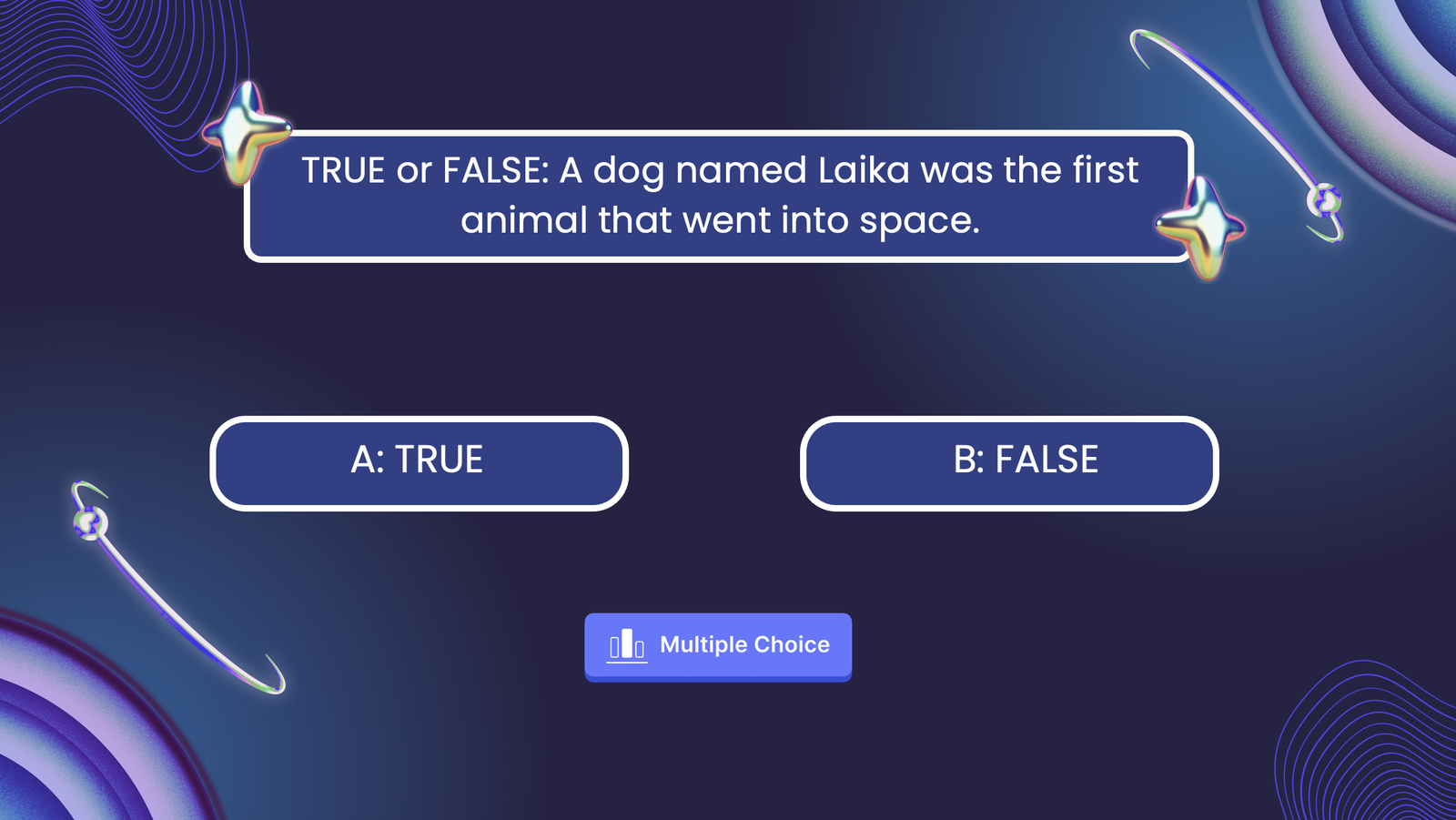
- What are the rules of the game?
- How long is the expected duration of the game?
- Are there any specific materials or equipment needed to play the game?
- Can you explain the objective or goal of the game?
- Are there any hidden surprises in the game that players might not immediately notice?
- Any secret tips for success in the game?
- Are there any special prizes or incentives for winners of tonight’s games?
- How is the game scored, and what determines the winner?
- What happens if there’s a tie in the game?
- Are there any variations or optional rules we should be aware of?
- Can you explain the order of play and how turns are determined?
- Are there penalties or consequences for certain actions during the game?
- Can participants form teams, or is the game strictly individual play?
- Are there any restrictions on player movement or interaction during the game?
- Can you provide examples of common strategies or tactics used in the game?
- How is cheating or rule violations handled in the game?
- Can you recommend any strategies for newcomers or first-time players?
Feedback Q&A Questions
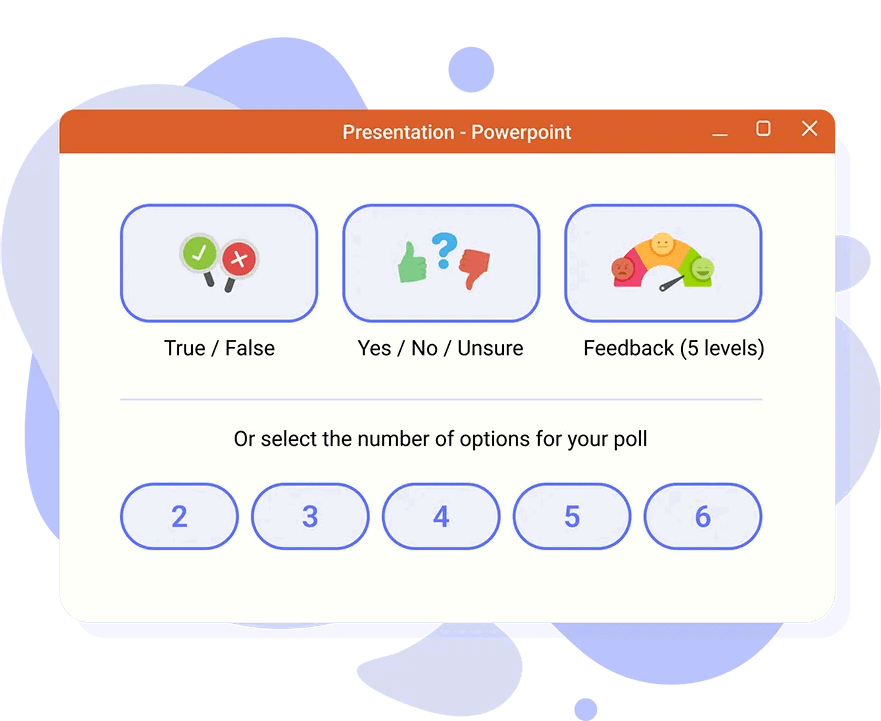
- What specific aspects of the presentation do you think were most effective?
- Can you provide suggestions for improving the clarity of certain points in the presentation?
- How well do you think the presenter engaged with the audience during the presentation?
- Were there any areas where you felt the presentation could have been more engaging or interactive?
- Can you offer insights into the pacing of the presentation and whether it was appropriate?
- What are your thoughts on the visual elements, such as slides or graphics, used in the presentation?
- Were there any technical issues or challenges that affected your experience during the presentation?
- Can you provide feedback on the overall organization and structure of the presentation?
- Were there any moments in the presentation that you found particularly memorable or impactful?
- Did the presenter effectively convey the key messages or takeaways of the presentation?
- How well did the presenter connect with the audience’s level of understanding or familiarity with the topic?
- Can you discuss any specific examples or anecdotes that resonated with you during the presentation?
- Were there any instances where the presenter could have provided more context or background information?
- What are your thoughts on the presenter’s use of language, tone, and overall communication style?
- Can you suggest ways in which the presenter could improve audience engagement or participation?
- Were there any aspects of the presentation that you found confusing or difficult to follow?
- Can you share your overall impression of the presentation and whether it met your expectations?
- What recommendations do you have for the presenter to enhance the overall impact and effectiveness of future presentations?
Closing Thoughts
With more than 300 Q&A questions to help you with your preparation, you can save so much time thinking and anticipating the questions your audience may ask during the Q&A session of your presentation. Now, you can focus on what matters most – acing your presentation!
BONUS: Lazy to create PowerPoint presentations from scratch? Try these 11 top-rated AI PowerPoint generators (they’re free!), as well as these 4 ways to use ChatGPT to create PowerPoint presentations .
About Zhun Yee Chew
Try classpoint for free.
All-in-one teaching and student engagement in PowerPoint.
Supercharge your PowerPoint. Start today.
500,000+ people like you use ClassPoint to boost student engagement in PowerPoint presentations.
160 Questions to Ask After a Presentation
Asking questions after a presentation is not just about seeking clarity on what was discussed. It’s a golden opportunity to delve deeper, engage with the speaker, and enhance your understanding of the subject matter. But knowing which questions to ask isn’t always straightforward.
In this piece, we’re about to break down the art of crafting impactful questions post-presentation that will not only benefit you but also add value to the entire audience’s experience.
Table of Contents
Questions to Ask After a Presentation for Feedback
Questions to ask after a presentation interview, questions to ask students after a presentation, questions to ask after a research presentation, questions to ask after a business presentation, questions to ask after a marketing presentation, questions to ask after a book presentation, reflection questions to ask after a presentation, frequently asked questions, final thoughts.
- Can you summarize the key points of the presentation?
- What aspect of the presentation did you find most engaging?
- Were there any areas that were unclear or confusing? If so, what were they?
- How would you rate the overall organization and flow of the presentation?
- Did the visual aids (such as slides or charts) enhance your understanding of the topic? Why or why not?
- Did the presenter maintain good eye contact and use body language effectively?
- Was the presenter’s tone and pace suitable for the content and audience?
- Were there any statistics or facts presented that stood out to you? Why?
- Did the presenter address potential counter-arguments or opposing views adequately?
- Were the objectives of the presentation clearly stated and met?
- How well did the presenter handle questions or interruptions during the presentation?
- Was there anything in the presentation that seemed unnecessary or redundant?
- What would you suggest to improve the presentation for future audiences?
- How did the presentation change or influence your thinking about the subject?
- Did the presentation feel tailored to the audience’s knowledge and interest level?
- Was there a clear and compelling call to action or concluding statement?
- Did the presentation feel too short, too long, or just the right length?
- What was your overall impression of the presenter’s credibility and expertise on the subject?
- How would you rate the relevance and importance of the topic to the audience?
- Can you identify any biases or assumptions in the presentation that may have influenced the message?
- How did you determine what content to include in your presentation?
- Can you explain the rationale behind the structure and flow of your presentation?
- What challenges did you face while preparing this presentation, and how did you overcome them?
- Were there any points in the presentation where you felt you could have elaborated more or less? Why?
- How did you decide on the visual elements and design of your presentation?
- Can you describe your intended audience and how you tailored the content to engage them?
- How did you ensure that the information presented was accurate and up-to-date?
- Were there any counter-arguments or opposing views on this topic that you considered including?
- How would you adapt this presentation for a different audience or context?
- How do you handle unexpected questions or interruptions during a presentation?
- Can you give an example of how you’ve handled negative feedback on a presentation in the past?
- How do you measure the success of a presentation? What metrics or feedback do you seek?
- What techniques do you use to engage an audience that may not be familiar with the topic?
- How do you balance the need to entertain and inform in a presentation?
- How do you prioritize information when you have a limited time to present?
- What strategies do you employ to ensure that your main points are memorable?
- How do you deal with nerves or anxiety before or during a presentation?
- Can you describe a situation where a presentation did not go as planned and how you handled it?
- How do you keep up with the latest trends and best practices in presenting?
- Is there anything you would change about this presentation if you were to do it again?
- How did you feel about the presentation? Were you confident or nervous, and why?
- What was the main message or goal of your presentation, and do you think you achieved it?
- How did you decide on the structure of your presentation?
- What research methods did you use to gather information for this presentation?
- Were there any challenges you encountered while preparing or presenting, and how did you address them?
- How did you ensure that your visual aids or multimedia elements supported your key points?
- What part of the presentation are you most proud of, and why?
- Were there any areas where you felt uncertain or that you would like to improve upon for next time?
- How did you tailor your presentation to fit the knowledge level and interest of your audience?
- What techniques did you use to engage the audience, and how do you think they worked?
- How did you practice your presentation, and what adjustments did you make as a result?
- Did you feel the time allotted for your presentation was sufficient? Why or why not?
- How did you decide what to emphasize or de-emphasize in your presentation?
- What feedback did you receive from peers during the preparation, and how did you incorporate it?
- Did you have a clear conclusion or call to action, and why did you choose it?
- How do you think your presentation style affects the way your audience receives your message?
- What would you do differently if you were to present this topic again?
- Can you reflect on a piece of feedback or a question from the audience that made you think?
- How has this presentation helped you better understand the subject matter?
- How will the skills and insights gained from this presentation experience benefit you in the future?
- Can you elaborate on the research question and what prompted you to investigate this topic?
- How did you choose the methodology for this research, and why was it the most suitable approach?
- Can you discuss any limitations or constraints within your research design and how they might have affected the results?
- How do your findings align or contrast with existing literature or previous research in this field?
- Were there any unexpected findings, and if so, how do you interpret them?
- How did you ensure the reliability and validity of your data?
- Can you discuss the ethical considerations involved in your research, and how were they addressed?
- What are the practical implications of your findings for practitioners in the field?
- How might your research contribute to theoretical development within this discipline?
- What recommendations do you have for future research based on your findings?
- Can you provide more details about your sample size and selection process?
- How did you handle missing or inconsistent data within your research?
- Were there any biases that could have influenced the results, and how were they mitigated?
- How do you plan to disseminate these findings within the academic community or to the broader public?
- Can you discuss the significance of your research within a broader social, economic, or cultural context?
- What feedback have you received from peers or advisors on this research, and how has it shaped your work?
- How does your research fit into your long-term academic or professional goals?
- Were there any particular challenges in conveying complex research findings to a general audience, and how did you address them?
- How does this research presentation fit into the larger project or research agenda, if applicable?
- Can you provide more insight into the interdisciplinary aspects of your research, if any, and how they contributed to the depth or breadth of understanding?
- Can you elaborate on the primary objectives and expected outcomes of this business initiative?
- How does this strategy align with the overall mission and vision of the company?
- What are the key performance indicators (KPIs) that you’ll be monitoring to gauge success?
- Can you discuss the risks associated with this plan, and how have you prepared to mitigate them?
- How does this proposal fit within the current market landscape, and what sets it apart from competitors?
- What are the potential financial implications of this plan, including both investments and projected returns?
- Can you provide more detail about the timeline and milestones for implementation?
- What internal and external resources will be required, and how have you planned to allocate them?
- How did you gather and analyze the data presented, and how does it support your conclusions?
- How does this proposal take into account regulatory compliance and ethical considerations?
- What are the potential challenges or roadblocks, and what strategies are in place to overcome them?
- Can you explain how this initiative aligns with or affects other ongoing projects or departments within the company?
- How will this plan impact stakeholders, and how have their interests and concerns been addressed?
- What contingency plans are in place if the initial strategy doesn’t achieve the desired results?
- How will success be communicated and celebrated within the organization?
- What opportunities for collaboration or partnership with other organizations exist within this plan?
- How does this proposal consider sustainability and the potential long-term impact on the environment and community?
- How have you incorporated feedback or lessons learned from previous similar initiatives?
- What are the key takeaways you’d like us to remember from this presentation?
- How can we get involved or support this initiative moving forward?
- Can you elaborate on the target audience for this marketing campaign, and how were they identified?
- What are the main objectives and key performance indicators (KPIs) for this campaign?
- How does this marketing strategy align with the overall brand values and business goals?
- What channels will be utilized, and why were they chosen for this particular campaign?
- Can you discuss the expected return on investment (ROI) and how it will be measured?
- What are the creative concepts driving this campaign, and how do they resonate with the target audience?
- How does this campaign consider the competitive landscape, and what sets it apart from competitors’ efforts?
- What are the potential risks or challenges with this marketing plan, and how will they be mitigated?
- Can you provide more details about the budget allocation across different marketing channels and activities?
- How have customer insights or feedback been integrated into the campaign strategy?
- What contingency plans are in place if certain elements of the campaign do not perform as expected?
- How will this marketing initiative be integrated with other departments or business functions, such as sales or customer service?
- How does this campaign consider sustainability or social responsibility, if at all?
- What tools or technologies will be used to execute and monitor this campaign?
- Can you discuss the timeline and key milestones for the launch and ongoing management of the campaign?
- How will the success of this campaign be communicated both internally and externally?
- How does this marketing strategy consider potential regulatory or compliance issues?
- How will the campaign be adapted or customized for different markets or segments, if applicable?
- What lessons from previous campaigns were applied in the development of this strategy?
- How can we, as a team or as individuals, support the successful implementation of this marketing plan?
- What inspired the main theme or concept of the book?
- Can you describe the intended audience for this book, and why they would find it appealing?
- How did the characters’ development contribute to the overall message of the book?
- What research was conducted (if any) to ensure the authenticity of the setting, characters, or events?
- Were there any challenges or ethical considerations in writing or presenting this book?
- How does this book fit into the current literary landscape or genre? What sets it apart?
- What do you believe readers will find most engaging or thought-provoking about this book?
- Can you discuss any symbolic elements or literary devices used in the book and their significance?
- How does the book’s structure (e.g., point of view, chronological order) contribute to its impact?
- What were the emotional highs and lows during the writing or reading of this book, and how do they reflect in the story?
- How does the book address or reflect contemporary social, cultural, or political issues?
- Were there any parts of the book that were particularly difficult or rewarding to write or read?
- How does this book relate to the author’s previous works or the evolution of their writing style?
- What feedback or responses have been received from readers, critics, or peers, and how have they influenced the presentation?
- What are the main takeaways or lessons you hope readers will gain from this book?
- How might this book be used in educational settings, and what age group or courses would it be suitable for?
- Can you discuss the process of editing, publishing, or marketing the book, if applicable?
- How does the book’s cover art or design reflect its content or attract its target readership?
- Are there plans for a sequel, adaptation, or related works in the future?
- How can readers stay engaged with the author or the book’s community, such as through social media, book clubs, or events?
- How do you feel the presentation went overall, and why?
- What part of the presentation are you most proud of, and what made it successful?
- Were there any moments where you felt challenged or uncertain? How did you handle those moments?
- How did you perceive the audience’s engagement and reaction? Were there any surprises?
- What feedback have you received from others, and how does it align with your self-assessment?
- Were there any technical difficulties or unexpected obstacles, and how were they addressed?
- How well did you manage your time during the presentation? Were there areas that needed more or less focus?
- How did you feel before the presentation, and how did those feelings change throughout?
- What strategies did you use to connect with the audience, and how effective were they?
- Were there any points that you felt were misunderstood or could have been communicated more clearly?
- How did the preparation process contribute to the overall success or challenges of the presentation?
- What did you learn about yourself as a communicator or presenter through this experience?
- Were there any ethical considerations in the content or delivery of the presentation, and how were they handled?
- How does this presentation align with your long-term goals or professional development?
- How would you approach this presentation differently if you had to do it again?
- How has this presentation affected your confidence or skills in public speaking or presenting?
- What resources or support would have enhanced your preparation or performance?
- How will you apply what you’ve learned from this presentation to future projects or presentations?
- How did your understanding of the topic change or deepen through the process of preparing and presenting?
- What steps will you take to continue improving or building on the skills demonstrated in this presentation?
What if I disagree with a point made during the presentation?
It’s important to frame disagreement in a constructive and respectful way. You might say, “ I found your point on X intriguing. From a different perspective, could Y also be considered…? ” This opens up a dialogue without dismissing the presenter’s viewpoint.
How can I formulate my questions to encourage a more detailed answer?
Use open-ended questions that start with “ how ,” “ why, ” or “ could you explain… ” as these require more than a yes or no answer and encourage the presenter to provide depth. For example, “ Could you explain the process behind your research findings in more detail? “
By asking insightful questions, you’re not only cementing your understanding of the material presented but also opening doors to further knowledge and collaboration. Remember, the quality of your questions reflects the depth of your engagement and willingness to learn.
So, the next time you find yourself in the audience, seize the opportunity to ask meaningful questions and watch as simple presentations transform into dialogues that inspire and illuminate.
How useful was this post?
Click on a star to rate it!
As you found this post useful...
Share it on social media!
We are sorry that this post was not useful for you!
Let us improve this post!
Tell us how we can improve this post?

Bea Mariel Saulo
Bea is an editor and writer with a passion for literature and self-improvement. Her ability to combine these two interests enables her to write informative and thought-provoking articles that positively impact society. She enjoys reading stories and listening to music in her spare time.
90 Questions to Ask After a Presentation
Have you ever found yourself mulling over a presentation, wishing you had a treasure trove of questions to uncover the speaker’s insights and wisdom fully?
The right question isn’t just a follow-up; it’s a key that unlocks a deeper connection with the topic. This guide is designed to arm you with a curated collection of inquiries that will enhance your understanding, invite valuable discourse, and help you to apply what you’ve learned.
Let’s dive into the art of the post-presentation conversation and transform every ending slide into an opportunity for continued learning and engagement.
Table of Contents
Clarifying Understanding
- Could you elaborate on the main thesis of your presentation?
- What inspired the topic of your presentation?
- Can you summarize the key points you’d like us to take away?
- Is there an aspect of your presentation you think deserves deeper understanding?
- How does your presentation relate to current trends or issues in the field?
- Were there any counterarguments or challenges to your points that you didn’t mention?
- In what way does your presentation build on or differ from existing research?
- Could you clarify the methodology behind your study or findings?
- How would you explain the significance of your findings to a layman?
- Is there a particular slide or section you can revisit for further clarification?
- Could you give an example that illustrates your point about [specific detail]?
- What were the assumptions underlying your analysis or argument?
- How do definitions used in your presentation compare to industry-standard ones?
- Can you clarify the statistical significance of your data?
- Where might we find more information on this topic if we wish to understand it better?
Digging Deeper into Content
- Can you expand on how your findings compare to similar studies?
- How might emerging technologies impact the relevance of your findings in the future?
- Are there ethical considerations linked to your presentation topic?
- What are the limitations of your research, and how can they be addressed in the future?
- How can your research be applied in other fields or industries?
- In what ways do your findings challenge conventional wisdom?
- Could you walk us through the process of how you collected your data?
- How would different theoretical frameworks affect the interpretation of your results?
- What unanswered questions remain after your presentation?
- How do you expect the discussion on this topic to evolve in the next five years?
- What are the implications of your findings for policy or practice?
- How does cultural context play into the outcomes of your research?
- Can you discuss any relevant case studies that connect to your presentation?
- What follow-up research would you recommend based on your work?
- In your research, what was the most surprising discovery you made?
Gathering Practical Applications
- How can we apply your research findings in our everyday work?
- What steps can organizations take to implement your recommendations?
- Can you suggest tools or resources for applying the insights from your presentation?
- How might your research influence day-to-day decision-making?
- Could you provide a real-world example where your findings have been put into practice?
- What are the short-term and long-term benefits of applying your findings?
- Who stands to benefit most from the practical applications of your research?
- Are there certain industries or sectors where your findings are particularly relevant?
- How will applying your findings change existing systems or processes?
- What are some common obstacles to implementing your research, and how can they be overcome?
- How do you recommend staying up-to-date on applications in your research area?
- Can you suggest partner organizations or groups that are working on applying these concepts?
- What measures can be put in place to evaluate the efficacy of applying your research?
- How do you foresee your findings impacting future innovations?
- What action can individuals take to support the practical application of your research?
Providing Constructive Feedback
- I found [specific point] very compelling; have you considered expanding on this?
- Your presentation makes a strong case for [topic]; how could it be enhanced with additional data?
- I noticed [aspect] during your presentation; could this be a point for further refinement?
- The visual aids were helpful; have you thought about using more interactive elements?
- The section on [specific area] was very informative; how can it be made more accessible for beginners in the field?
- In terms of delivery, would you be open to exploring other formats for your presentation?
- Your research draws important conclusions; how else might you support them?
- The pacing of your presentation was effective; could you use a similar approach to emphasize other key points?
- Given the complexity of your topic, have you considered a follow-up session or workshop?
- What additional resources or readings would you recommend to enhance our understanding of your topic?
- Your narrative was engaging; might there be a way to incorporate more storytelling?
- How might audience participation be facilitated in future presentations to enhance understanding?
- Were there alternative viewpoints you debated including in your presentation?
- How did you decide on the structure of your presentation, and what could be changed to improve it?
- Is there a component of your research that you feel requires more visibility or discussion?
Fostering Engagement and Discussion
- What questions do you have for the audience that might help further the discussion?
- How can the audience keep the conversation going outside of this presentation?
- Are there forums or networks where this topic is actively discussed?
- Could you propose a thought experiment or hypothetical scenario for us to consider?
- How can we encourage more interdisciplinary dialogue on this subject?
- What common misconceptions should we address to clear up understanding?
- In your opinion, what are the most controversial aspects of your topic?
- How can we contribute to the body of research or thought around this subject?
- What role can non-experts play in the discussion of these findings?
- Can you suggest a way to create a community or collective around this area of research?
- How would you like to see this information shared or disseminated?
- What would be an ideal outcome of the discussions that stem from this presentation?
- Are there collaborative projects or initiatives we could start as a result of your findings?
- Would you be interested in hosting a series of discussions to delve deeper into certain aspects?
- How do you suggest we handle differing opinions or debates that arise from your topic?
Exploring Next Steps and Actions
- Based on your research, what should be our immediate action?
- What are the first steps to be taken for those who want to delve deeper into this topic?
- Who should be contacted or involved in further development of this topic?
- Are there upcoming events or conferences where this topic will be featured?
- What can we do as individuals to further the research or findings you presented?
- How can we best track the progress and development in this area?
- What practical steps would you recommend for a follow-up study or project?
- Could you outline potential obstacles we might face in advancing this topic and how to overcome them?
- Are there policy changes or advocacy needed to move this conversation forward?
- How can the general public be engaged in the action steps related to your findings?
- What are the most critical areas for immediate exploration or action?
- Is there a need for collaboration with other disciplines to advance this topic?
- How can educators integrate your findings into their curriculum or teaching?
- What funding opportunities should be looked into to support further research?
- How can we measure the impact of the actions taken as a result of your presentation?
Frequently Asked Questions
Can i provide feedback on the presentation style as well as the content.
Yes, but always aim to be constructive and polite. Feedback on presentation style can be as valuable as feedback on content.
What should I do if my question isn’t answered during the Q&A session?
If time runs out, try approaching the presenter afterward or sending a follow-up email with your question.
How can I encourage a discussion rather than just a Q&A session?
Ask open-ended questions that invite the presenter or audience members to share thoughts and perspectives, thus fostering a more interactive dialogue.
Final Thoughts
And there you have it—a comprehensive guide to quenching your intellectual curiosity and contributing valuable insights after a presentation. From uncovering the nuances of presented content to setting the stage for future collaboration, asking these questions ensures that no stone is left unturned.
Remember, the journey of understanding and exploration doesn’t end with the closing slide; it’s merely the beginning. Now, go forth and turn those questions into conversations that matter!
How useful was this post?
Click on a star to rate it!
As you found this post useful...
Share it on social media!
We are sorry that this post was not useful for you!
Let us improve this post!
Tell us how we can improve this post?

Bea Mariel Saulo
- Effective Presentation Skills Tutorial
- Handling Questions and Answers
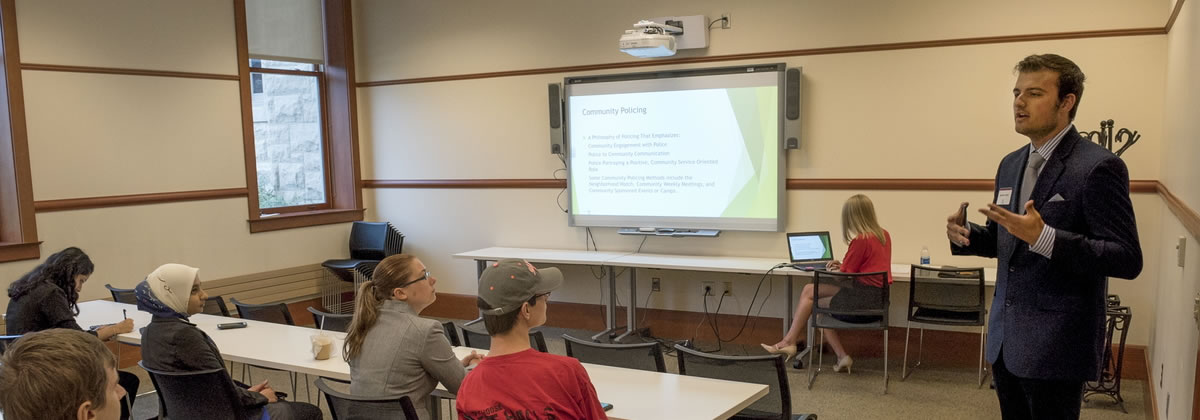
At the end of your presentation, if it is appropriate for the type of presentation, solicit questions from the audience.
Responding to Audience Questions
When someone is asking a question, make eye contact with that person, listen positively, and acknowledge by saying "thank you for that question," or say "that is an excellent question" or "that is an important question".
If the audience is in a large room and cannot hear each other's questions, repeat the question loudly for everyone to hear, before answering it.
If you know the answer to the question, respond appropriately and briefly so you can take more questions and not spend too much time on one question.
Effective Response to Question
This video clip is an example of a presenter effectively responding to an audience member's question .
Ineffective Response to Question
This video clip is an example of a presenter ineffectively responding to an audience member's question .
If the question is not relevant to the presentation, say something like, "I am really sorry that question is outside the scope of this presentation, but I will be happy to stay after the presentation and discuss it with you."
Effective Response to Off-topic Question
This video clip is an example of a presenter effectively responding to an off-topic question or one in which he or she does not know the answer .
Inappropriate Response to Off-topic Question
This video clip is an example of a presenter inappropriately responding to an off-topic question or one in which he or she does not know the answer .
If time is running out for answering all of the questions, say, "I am sorry. I am running out of time, but I will take one last question, and then I will be available at the end to answer any remaining questions."
If you do not know the answer to a question say, "That is an interesting question, and I will have to get back to you later on that" or ask the audience "Can someone help me with this?" or be gracious and acknowledge you do not know the answer at that time.
If an audience member criticizes or attacks what you had covered in your presentation, do not attack back, but separate the valid criticism from the personal attack, and respond to the criticism appropriately.
Some things not to do during the question and answer period:
- Shuffling papers or technology and not making eye contact with the questioner
- Belittling the questioner
- Calling those who want to ask questions by their physical characteristics
- Not taking questions in the sequence they are asked, but focusing on certain people or a side of the room
Asking Good Questions
If you are in the audience, know also how to ask good questions to indicate that you are following the presentation.
You can ask some general questions about any topic, and you may be genuinely curious about some things presented.
- What were the most challenging aspects, or what surprised you the most, in conducting this project?
- Why did you choose this particular methodology or argument instead of another one?
- How did you collect the data? Were there any problems in collecting data? What was the sample size?
- How did you validate your work? Did you validate with a real problem or situation?
- What are some of the limitations of your work?
- What recommendations do you have for further exploration in this project?
Learning to ask good questions at the end of a presentation demonstrates your active participation.
Previous
Take Quiz
- Preparing for the Presentation
- Organizing the Presentation
- Designing Effective Presentation Materials
- Rehearsing the Presentation
- Delivering the Presentation
- Presentation Skills Quiz
- Presentation Preparation Checklist
- Common Reasons for Ineffective Presentations

- SUGGESTED TOPICS
- The Magazine
- Newsletters
- Managing Yourself
- Managing Teams
- Work-life Balance
- The Big Idea
- Data & Visuals
- Reading Lists
- Case Selections
- HBR Learning
- Topic Feeds
- Account Settings
- Email Preferences
How to Nail the Q&A After Your Presentation
- Caroline Webb

You can’t rehearse it, but you can be prepared.
When preparing to give a presentation, most professionals focus their energy on the main portion of their talk — their key messages, slides, and takeaways. And far too few people think through how you’ll answer questions at the end of the presentation can be a big mistake. If you’re worried about how to hand the Q&A, there are several things you can do. Change your mindset. Rather than dreading this part of the talk, develop an appreciation for the conversation. It’s a good thing that people have follow-up questions and want to further engage with your content. Beforehand, think through the types of questions audience members might ask. Put yourself in your shoes and ask yourself what concerns they might have about how your message impacts their job. Then, when you’re asked a question, especially one that might be contentious, start your answer by focusing on where you and the person asking it agree. This makes the person feel seen and connected to you. And if you’re asked a question out of left field, be curious. Ask follow-up questions that help you understand what they’re getting at and where they’re coming from.
If you’re not a huge fan of public speaking , you’re in good company. It’s such a widely shared source of anxiety that when psychologists want to induce unpleasant stress in a person for experimental purposes, they often use a public speaking task called the Trier Social Stress Test . The test requires people to give a talk and do sums in front of a panel of impassive listeners, and it reliably generates stress markers such as a faster heart rate, raised cortisol levels, and “enhanced skin conductance,” which is the polite way of saying sweaty palms.
- Caroline Webb is the author of How to Have a Good Day: Harness the Power of Behavioral Science to Transform Your Working Life . She is also CEO of coaching firm Sevenshift , and a senior adviser to McKinsey & Company. Follow her on Facebook or Google + . caroline_webb_
Partner Center
Presentation Skills: How to answer those killer questions
Feb 19, 2017 by maurice decastro in communication skills , presentation skills , presentation tips.

Questions can be a major source of anxiety for many presenters.
In our presentation skills courses we are often asked to help people to answer questions more professionally.
It’s a much bigger issue than many people think.
When we probe a little deeper to understand the issue, our delegates often ask 3 questions:
1. ‘How do I respond confidently to a question I simply don’t know the answer to?’
2. ‘What if I don’t understand the question?
3. ‘How do I deal with hostile questions?’
Our first task is to re-frame the way we think about being asked questions. For many people that presents a significant challenge.
It is often perceived as the moment of truth
We’ve spent hours crafting our presentation to ensure its content rich and helpful. We know our content well and have practiced exhaustively.
We’ve left nothing to chance; so what’s the problem?
It’s as simple as it is frightening. We convince ourselves that our entire reputation depends on how we answer questions.
Unfortunately, there can be a touch of truth behind that limiting belief. That’s why it’s the cause of so much anxiety amongst presenters.
There’s plenty you can do to answer those challenging questions with confidence and credibility. Before we explore them, try to avoid this mistake.
Don’t answer a question saying:
“That is a really good question and I am glad you asked it.”
Quite often, it’s not a good question? If it’s not a good question the response sounds glib. If it is a good question, does that mean the others aren’t?
How you would feel if you asked the next question and the presenter didn’t acknowledge it as a ‘really good question’.
Just answer the question.

The scary six
Our job as presenters extends beyond crafting a content rich, compelling, presentation. We also have to deliver it in a way that is congruent with our message. We have to anticipate difficult questions too.
Surround yourself with a small group of people you trust and respect. Share your presentation with them giving each person a specific role.
Devil’s advocate
Ask them to be contentious, oppose your view and challenge the strength of your presentation.
Their role is to criticise you and to create an atmosphere of hostility and distrust.
The energy thief
Get them to look for a negative aspect of everything you say.
The know all
Encourage them to actively demonstrate that they know more than you on the topic.
Let them tell you in the most respectful way that they don’t agree with you.
The wanderer
They demonstrate that they haven’t listened to a word you said.
It’s not an excercise for the faint hearted because it takes courage.
It is, however an investment worth making.
Once the scary six have taken you and your presentation apart, take another look at your presentation.
As painful and as strange as it may sound, remember it’s not real and it won’t happen. You, however, will be prepared for anything.
What exactly should you do with those awkward questions?
Killer question 1 – You don’t know the answer
The old saying ‘honesty is the best policy’, has stood the test of time because it’s true. The moment you try to bluff your way through a question you don’t know the answer to, you lose your credibility.
Try this instead.
Step into the question. In other words, take a step forward towards your audience. If you are seated then lean forward into the table or desk.
Have you noticed how common it is for people to be on the ‘back foot’ when they don’t know the answer to a question?
Your challenge is to be on the front foot and to step into or lean into the question.
Acknowledge the person who asked the question with eye contact. After that, bring the rest of the room into your response with eye contact too. Once you’ve moved forward and made eye contact, confidently say, ‘I don’t know, but I’ll find out and let you know’.
You have a few choices at this point. You can:
Ask the audience
“I don’t know the answer to that but I wonder whether anyone else in the audience does.”
“Can anyone help answer that question?”
Share a thought
You may not have the answer but you may have a view. Share a thought or perspective on the question if you have one.
‘I don’t know, but I’ll find out and let you know. In the meantime I have a thought on the issue. Please keep in mind that it’s not the answer to your question as I’ve already stated I don’t know the answer but here is a thought…
What’s your view on that?’
Ask for a moment
If you need a little time to think about the question, ask for it.
‘I need a few moments to think about that.’
This also take a little courage but remember, you don’t need to rush in to giving an answer.
Give yourself a little time to think. Your audience will respect you for it.
Postpone the answer
It may well be that you know the answer but under pressure the answer has slipped your mind. This is another opportunity to be honest.
‘ Given the importance of the question, I’d like to give you the most complete answer I can. I will need to get back to you in…’
Killer question 2 – You don’t understand the question
I’ve long held the view that most people don’t really listen. I believe that many do something else – they wait to speak.
“Most people don’t listen with the intent to understand; they listen with the intent to reply.” Stephen R. Covey
That is often the reason why we don’t understand the question. The solution is relatively simple; we need to really listen. That means:
– Listen – to the entire question
– Breathe – don’t leap straight into a response
– Check – ‘Let me just check that I understand you correctly, you are asking me if…’
‘To make sure that I’ve understood you correctly are you asking…’
If you still don’t understand the question, don’t panic. Take a deep breath and ask them to clarify what they mean. Explain politely that you are still not clear you understand the question.
Killer question 3 – It’s a hostile question
Most audiences are on your side. They are friendly, open and are keen to learn from you. That said, every now and then you may get what we call hostile questions.
They feel hostile because of the emotional charge. The questioner may wave their pen at you challenging or criticizing your perspective.
If this happens, your job is to remain calm. Depersonalize the attack and avoid being over defensive; easier said than done I know.
Your first priority is to diffuse the emotional charge and to take care of the rest of the audience whilst respecting the questioner.
Treat them the same as any other member of the audience. Answer their question as honestly and as professionally as you can.
Avoid matching your tone of voice to theirs. Stay calm, professional and polite. Remember that your audience will align with whoever is more courteous and respectful.
Very occasionaly it appears as though the questioner is looking for more of an argument rather than an answer. This is rare but if it happens, you owe it to the rest of your audience to close it down.
You do have some options:
– You can acknowledge their concern and suggest that the two of you meet separately after the presentation to discuss the matter in greater detail.
– If the questioner persists you can calmly assert:
‘I’m afraid I need to move on now.’
It’s possible that you may need to repeat this two or three times.
– A simple but powerful technique you can use to respectfully regain control of your presentation is to:
That means listening very closely and carefully to the perspective of the questioner.
You have listened closely enough to find something you can sincerely agree with. That does not mean you agree with a point they make even if you don’t. It means you listen intently for something that does make sense to you that you can agree with. When there is such a high emotional charge in a question it’s often fueled by passion and a need to be heard.
The questioner isn’t a bad person. They are simply someone who feels very strongly about what you are saying and may not share your perspective. Once you have listened closely enough to find something you can genuinely agree with, no matter how small, there is only one thing left to do.
You acknowledge that you agree with that element of their argument. Tell them that you understand their perspective or that the specific point they just made makes sense to you. Then you pause and you stay silent.
It’s more than a pause of course, as you are signalling to the questioner that you have nothing else to say on the matter.
You don’t say a word and watch what happens next.
Try to understand the motivation behind the question and tone. Share what you are picking up from them: “It sounds like your main concern is with the process. Is that correct?” This will encourage them to focus on the point they are trying to make. It will also give you a little time to consider a response.
One of the many key distinctions between a Mindful Presenter and a mediocre presenter is the ability to handle challenging questions professionally and effectively.
That distinction is achieved through the conscious focus and effort to:
– See questions as an opportunity to learn and engage, rather than be judged
– Listen very carefully to the question
– Lose the ‘headstuff’; in other words not making it all about you
– Pause and breathe
– Repeat the question if necessary and appropriate
– Understand the motivation behind the question
– Respect the questioner and the audience
– Anticipate difficult questions whilst crafting the presentation
– Stay calm, focused and on message
– Close the questions down politely and move on
If you need help answering those killer questions:
– Book yourself onto a powerful public speaking course .
– Invest in some really good one to one public speaking coaching .
– Get yourself some excellent presentation training
Image courtesy of: iStock.com
- Connect Now
Share this article
- Share on Facebook
- Share on Twitter
- Share on LinkedIn
To join one of our workshops or lean more, complete our enquiry form or call us on +44 (0)20 7666 3453 and we can get connected.
- Our Approach
- The Benefits
- Public Speaking Courses
- Presentation Training
- The Complete Mindful Presenter
- One-to-One Public Speaking Coaching
- Coaching Development Package
- What Our Clients Say
- The Truth Series
- Our Podcast
- Style Review
- Mindful Selling 4D
- Mindful Leadership
Blog Sign Up
Recent posts.
- Public speaking masterclass
- 10 Reasons to Join Our Next Public Speaking Masterclass
- 4 types of presentation energy: Survival, Safety, Shallow & Smart
- 12 Public Speaking & Presentation Tips For Q&A Success
- 10 Novel public speaking ideas from unexpected sources
- Bullet Point
- Communication Skills
- Mindful Selling
- Mindfulness
- Presentating training
- Presentation Skills
- Presentation Tips
- Public Speaking
- Sales Skills
- Storytelling
- virtual presentation
- Virtual Presentations
- Who are you?
- Learning Centre
- Presentation Skills Review
- Our Clients
- Testimonials
- Presentation Skills Training
- Public Speaking Coaching London
- Public Speaking Anxiety Course
- Phone: +44 (0)20 7666 3453
- Email: [email protected]
- Address: Mindful Presenter Ltd 86-90 Paul Street, London, EC2A 4NE
Sign up for our newsletter and download your free guide to authentic public speaking.

Presentation Guru
The most successful ways to answer questions from your audience.

Every presenter will eventually have to deal with questions from an audience, but what are the best ways to prepare for the questions they may ask? In this article Simon gives a few tips to make sure you’re always ready to answer your audience’s questions effectively, and with confidence .
Let’s face it, presentations are scary. And that’s quite right – they should be. Nerves show you care. If you’re not nervous, why are you bothering? I’ve met good presenters and I’ve met presenters who aren’t nervous: I can count the number of presenters who are in both camps on the thumbs of one foot.
So far, so obvious. But when I ask clients what the most scary bit of presentations is, they most common answer I get is, the questions section.
If I probe deeper, the reasons it’s the most nerve-wracking include things like:
- I can control the rest of the presentation but not this bit
- I can’t rehearse the questions – or the answers!
- I have to think too fast
- I might not know the answers
- I might find out people didn’t like it
- I might have made a mistake
The scary bit, then. The bit of the presentation which brings even experienced presenters out in a cold sweat. Before we get into the tools and techniques for handling questions, let’s look at some of these, very quickly. We can shoot a few of these issues down without breaking sweat – particularly the last few…
Get your ego out of the way
Let’s face it, if you’ve made mistakes, wouldn’t you like to know? If you’d rather people didn’t tell you that you’ve screwed up, you’re not ever going to get a job on my team. The same is true if you’d rather not know that people didn’t like it. Grow up.
And while we’re at it, if you don’t know the answers, that’s fine. Not ideal, but it’s not the end of the world. So long as you know enough, it’s okay. Not knowing the answers is only a problem if you don’t know too many of the answers.
So let’s move on and look at bit more at the ‘real’ issues.
The first thing to say is that more or less any and all of the tricks you learn as a presenter for handling nerves can be used at the start of questions. At the moment when you invite the questions, do your nerves-control-techniques , just like you did at the start of the presentation. (If you don’t have any, pay me to learn some 😉 )
The second key point is very simple. People only ask questions for one of two reasons. Firstly, to show off and secondly because they’re interested. The first group will be transparent to the audience, so don’t lose any sleep over anyone whose ego is bigger than their common sense. The second group, those who ask questions because they want to know more, are to be celebrated. They’re a good thing. Honestly.
Remember, people only ask questions if they care. The very fact that they’re asking questions is a great thing because it shows you did the key thing a presentation is supposed to do – you got them interested. When the questions happen, allow yourself a little smile inside. Result!
Predicting the future – and guessing the questions
But what about this idea that you don’t know what the questions are going to be?
Sorry, but that’s tosh. You might not be able to predict exactly what question, but you can certainly predict the sort of question. A structured, sensible process for designing your presentation – whatever process you use – will certainly throw up more content than you can fit into your presentation. The process of designing your presentation should start off by deciding what to remove.
Chances are, the questions you get will lie in that area you’ve cut out. And if that’s the case, you know what the content is, so you can design your answers just like you’d design the rest of your presentation . Simple.
Well yes… but just because it’s simple doesn’t mean it’s easy. Just ask anyone who’s ever tried to lose weight. The rules of “Eat less: move more” are simple – but not easy!
So let’s break it down a bit to make it more practical. I’m going to start by looking at how to handle the worst case scenario… the blank head where you just don’t know the answer. (Note, I’m dealing with it first because it’s easy to get out of the way, not because it happens often!)
I have no idea
The worst case scenario is simply not to know the answer, so let’s deal with that first. The best way I’ve ever found to handle this issue is to be honest about it, but to respond in a very structured way, so that my credibility stays intact. The formula is this:
- I don’t know, but it’s a good point
- so I’ll find out
- and if you give me your email address I’ll get back to you about it
- by lunchtime on Thursday
Obviously you change the time in the last part to be something you can handle. The first line is a simple admission that you’ve not got the answer to hand. The second part is where you start to recover. The last line is the critical one though. This is how you sound credible to the audience.
Try it for yourself: just say the first line and see how ‘shallow’ it sounds. Then start from the beginning and go through the first two lines. It’s better, but it’s not trustworthy. Finally, run through the whole set of lines and see how much more ‘weight’ the whole thing has when you make a specific promise.
It goes without saying that you need to deliver on that promise!
I still have no idea
A couple of alternative techniques are useful here, too… you can use these in a mix-and-match way.
- Open up to the audience. Try something like “That’ a very good question – what does everyone else in the room think?”. If you do it with enough style and you’ve used an approach up until that point which has been sufficiently collaborative and informal, it can work seamlessly.
- Use a broader-brush answer . Sometimes the question isn’t one that requires a very specific response. You’d be surprised how often one broad-brush answer can be applied to different questions. Take a few moments to consider if this is one of those times. If you’ve got (say) five or six such ‘generic’ answers sorted out in your head before you start your presentation you can often apply one of them instead of trying to improvise an answer.
Save yourself some thinking and PREP
Answering questions means you have to think hard and fast – about both the content of what you say and the way that you say it. One very handy trick is to use structured formulae to give your response a shape. That way you only need to think about the actual content – halving the work on your brain. Once you’ve learned these tools, not only will you love ‘em, you’ll spot them almost every time you listen to a political interview.
This formula is particularly handy for dealing with challenging questions: it stands for Past, Present and Future.
You use it like this:
- “You’re absolutely right to point out that in the past our response times have been too slow. It often took us up to a week to get back to users who emailed in with questions – although the average response time was only 36 hours.”
- “What we’re doing right now is investing in training 14 new members of the online help team. They’re all experts in the software already, so we’re just bringing them up to speed about how the helpdesk works.”
- “What this means that starting next Monday we’ll have a bigger response team standing by, as these new people come on-stream: they should all be up-and-running within only ten days.”
(Numbers 1, 2 and 3 representing Past, Present and Future, in this example.)
This is the most subtle of the formulae, and it stands for Point, Reason, Example, Point. The last point is a restatement of the first one to really hammer it home, not a new point.
The Reason section of your response deals with big picture, data and statistical responses. It puts a logical set of facts to your audience. To make it more impactful with your audience you need to back it up with an Example . Finally you recap your Point .
This example shows you how I used it to respond to a challenging question about women’s rights from someone who was genuinely surprised that women and (more or less) equal rights to men in the UK, including being able to vote…
- “Do I believe women should have the right to vote? Yes, absolutely!”
- “Let’s face it, women make up a bit over half the population of the country and they bring in about forty-eight percent of our GDP – nearly half the money they country gets in.”
- “In fact, in my own household, my wife has a great job and bring in nearly twice the amount I do. It makes her the economic head of the household, although we don’t think of it in those terms. It would seem daft to have the economic head of the household able to vote!”
- “So yeah, absolutely, I think women should vote!”
I’ve labeled the PREP parts as numbers 1 to 4 so you can see what’s what, but the words should flow naturally.
That’s it. Actually it’s not – there’s always more to be said… but it’s a great start.
Predict your questions, prepare your answers. Celebrate them when you get them, and use formulae to help you structure your answers. You’ll be great!
Don’t finish with questions
It all too easily means your presentation gradually runs out of energy and finishes with a whimper. Better to end with a bang. What I do is to take the questions and then when there are (almost) no questions left, go back into ‘ delivery ’ mode to give a very (very!) brief summary before wrapping up with my trademark close. It means the presentation finishes with high energy, on my terms…
- Latest Posts

Simon Raybould
+simon raybould, latest posts by simon raybould ( see all ).
- Motivational Speakers – Are They All They’re Cracked Up To Be? - 4th April 2017
- Do I Really Need Slides in Every Presentation? - 18th October 2016
- The Most Successful Ways to Answer Questions From Your Audience - 8th September 2016

Your email address will not be published. Required fields are marked *
Follow The Guru

Join our Mailing List
Join our mailing list to get monthly updates and your FREE copy of A Guide for Everyday Business Presentations
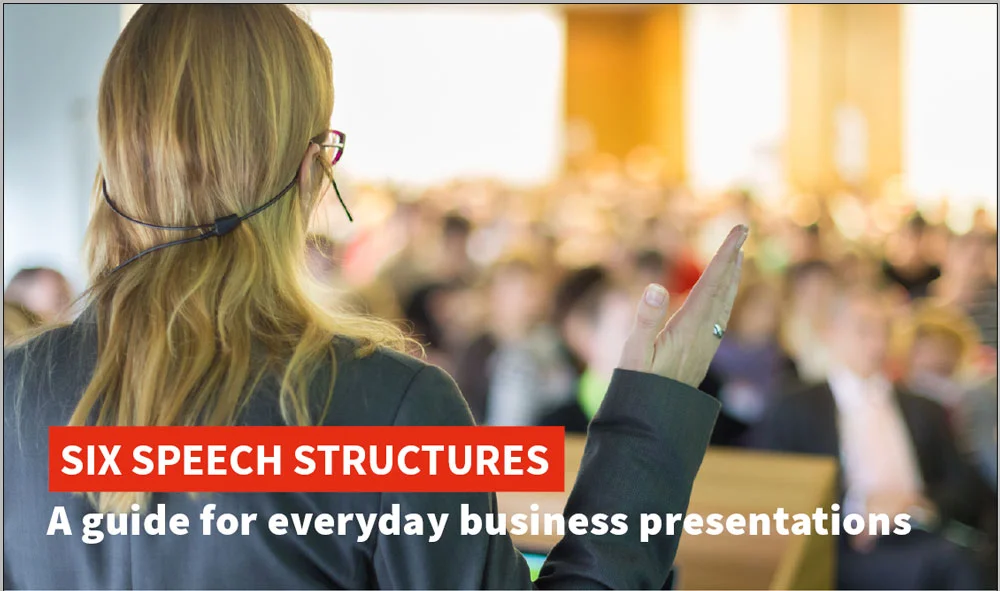
The Only PowerPoint Templates You’ll Ever Need
Anyone who has a story to tell follows the same three-act story structure to...
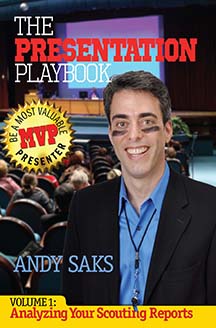
NOW AVAILABLE! The Presentation Playbook Series
- Trade Show Presenter
- Testimonials
- Trade Show Staffing
- Sample Videos
- Seminar Speaker
Spark's Presentation & Public Speaking Blog
- 7 Tips to Encourage Audience Questions in Your Presentation Q&A
September 19, 2017
Ever seen a presenter ask “Any questions?” at the end of their presentation, and heard only crickets from the audience?
In my work as a professional emcee and trade show presenter , I see it often, and it always makes me cringe because it’s so awkward, and so completely avoidable.
Asking for questions and getting none kills a presentation’s momentum. It usually goes like this:
- The presenter, having run out of content, asks “Any questions?”
- The audience, having no questions, freezes in place.
- Everyone thinks they hear crickets, though there are none in the room.
- The presenter, getting no questions, says, “OK, I guess I’m done.”
OUCH. How’d that happen?
Chances are, you caught your audience by surprise. They didn’t know you’d take questions, so they didn’t think of any. When you asked, you caught them off guard.
I want your next presentation to end with a bang, not a whimper. So try these tips to encourage questions:
1. PREPPING YOUR Q&A: PRIME YOUR AUDIENCE
> TIP THEM OFF EARLY: As you start your presentation, tell your audience: “I’ll take all your questions at the end, so write down your questions as you think of them along the way.” That’ll get them active thinking of questions throughout your presentation.
> REMIND THEM: A few minutes before you take questions, say: “I’ve got one more slide to cover, then I’ll take your questions.” That’ll remind them to think of some questions if they haven’t yet.
2. STARTING YOUR Q&A: GIVE THEM A NUDGE
> LEAVE ROOM: Starting a Q&A with little or no time left discourages questions; your audience wants to leave on time too! Instead, carve out 5-10 minutes or more for questions (and cut some content to make room if needed; your audience prioritizes the information they want to get over the information you want to share).
> USE A PLANT: Have a “plant” in the audience who’ll ask the first question (one you’re comfortable answering), which encourages other audience members to ask (and saves them the awkwardness of going first) and gives them time to think of something to ask.
> CHANGE YOUR PHRASING: Your audience may interpret the phrase “Any questions?” as a sign that you don’t expect or even want questions, which discourages them from asking. Instead, encourage questions by phrasing your question with a more upbeat, expectant tone: “Who’s got a question?” or “Who’d like to go first?”
> ASK IT YOURSELF: Ask yourself a common question: “One question I get often is…” Then answer it. Again, this encourages the audience to follow suit, and gives them more time to think of a question.
3. ENDING YOUR Q&A: ADD THAT BANG!
Q&A or not, ending your presentation by saying you’re ending your presentation (“OK, I guess I’m done”) will end your presentation with a whimper. You can easily replace that whimper with a “bang” by restating your main takeaway and thanking your audience:
“Folks, I hope my presentation has shown you that when it’s raining and you want to stay dry outside, use an umbrella! You won’t regret it. Thanks so much for your time.”
And thank you so much for your time!
by Andy Saks
Posted in: Sparky Says: Presentation & Public Speaking Tips | No Comments
Add your comment
Leave a Reply Cancel reply
Your email address will not be published. Required fields are marked *
Save my name, email, and website in this browser for the next time I comment.
Notify me of follow-up comments by email.
Notify me of new posts by email.




IMAGES
VIDEO
COMMENTS
In this article, you will find more than 300 Q&A questions that are most commonly asked in a wide range of presentation occasions. Save them so you can be ready for even the most unexpected questions in your upcoming presentations!
Asking questions after a presentation is not just about seeking clarity on what was discussed. It’s a golden opportunity to delve deeper, engage with the speaker, and enhance your understanding of the subject matter. But knowing which questions to ask isn’t always straightforward.
90 Questions to Ask After a Presentation. Have you ever found yourself mulling over a presentation, wishing you had a treasure trove of questions to uncover the speaker’s insights and wisdom fully? The right question isn’t just a follow-up; it’s a key that unlocks a deeper connection with the topic.
Did you validate with a real problem or situation? What are some of the limitations of your work? What recommendations do you have for further exploration in this project? Learning to ask good questions at the end of a presentation demonstrates your active participation.
Change your mindset. Rather than dreading this part of the talk, develop an appreciation for the conversation. It’s a good thing that people have follow-up questions and want to further...
A key element of presentation skills is the ability to answer challenging questions professionally, calmly and effectively.
Understanding different types of questions you might encounter can allow you to better prepare concise, helpful answers for your audience. In this article, we list some of the benefits of answering questions after a presentation and offer tips for responding confidently to presentation questions.
Nerves show you care. If you’re not nervous, why are you bothering? I’ve met good presenters and I’ve met presenters who aren’t nervous: I can count the number of presenters who are in both camps on the thumbs of one foot. So far, so obvious.
When you ask your presentation audience for questions, do you hear crickets? Use these simple tips to fill your Q&A with eager audience questions.
1. Pitch your presentation at the right level for your audience. The first stage of questions is birth – they have to be born in your audience’s mind. If your presentation is too simple for the level of knowledge in your audience – it’s all material they’ve covered before – they won’t have any questions.